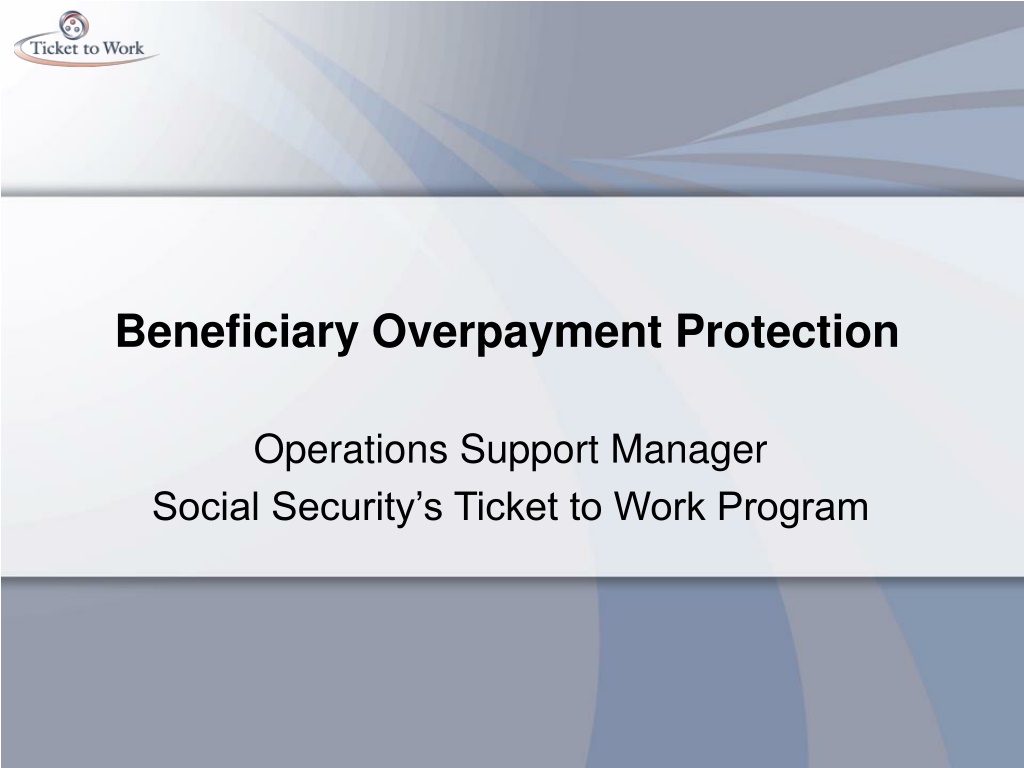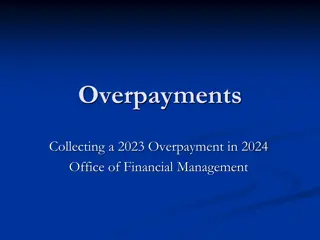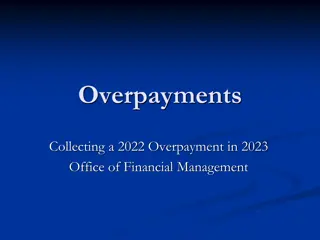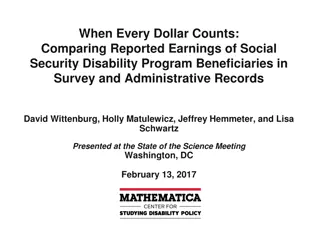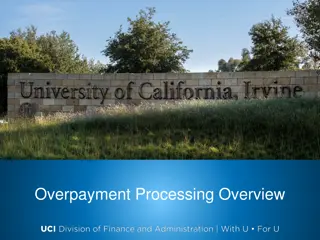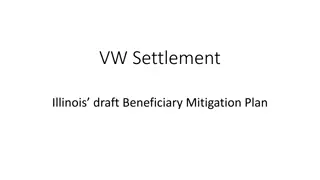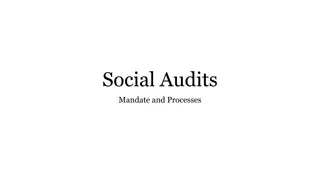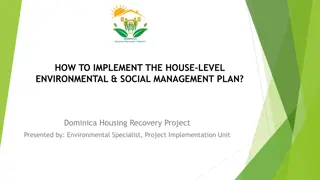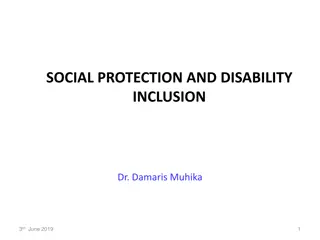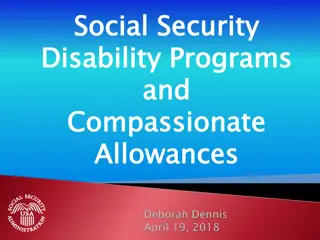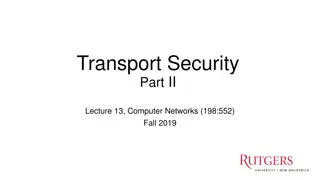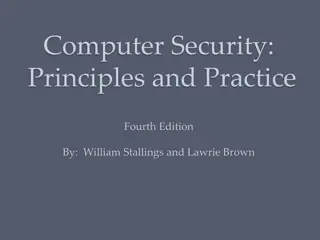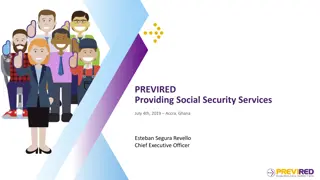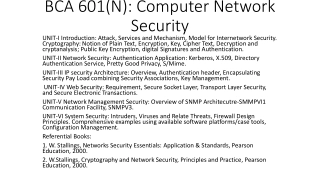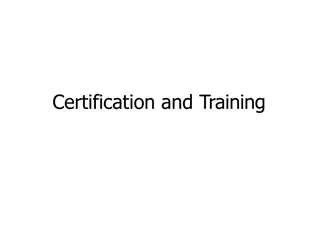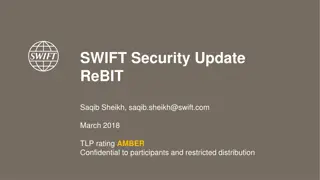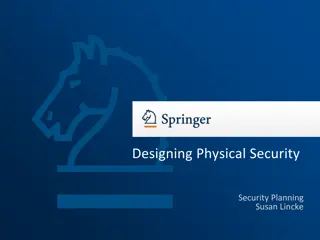Understanding Beneficiary Overpayments in Social Security Programs
Exploring the concepts of beneficiary overpayment, this informative content delves into how overpayments occur for SSI and SSDI beneficiaries, steps to notify beneficiaries, their rights for reconsideration or waiver, and tips to avoid overpayments. It covers excess income and resources, ways overpayments happen, and specific guidelines for SSI and SSDI beneficiaries. Helpful images aid in understanding the content.
Download Presentation

Please find below an Image/Link to download the presentation.
The content on the website is provided AS IS for your information and personal use only. It may not be sold, licensed, or shared on other websites without obtaining consent from the author. Download presentation by click this link. If you encounter any issues during the download, it is possible that the publisher has removed the file from their server.
E N D
Presentation Transcript
Beneficiary Overpayment Protection Operations Support Manager Social Security s Ticket to Work Program
Objectives Define a beneficiary overpayment Describe how an overpayment occurs for SSI and SSDI beneficiaries List the steps necessary to notify a beneficiary of an overpayment Explain to your clients their rights to request a reconsideration or a waiver of an overpayment Utilize suggestions and tips for assisting beneficiaries in avoiding overpayments 2
Definition of Overpayment The total amount an individual received for any period which exceeds the total amount which should have been paid for that period. 3
How Overpayments Occur Overpayments can occur for SSI recipients due to: 1) Excess income 2) Excess resources 3) Other factors Overpayments can occur for SSDI beneficiaries due to: 1) Performing Substantial Gainful Activity (SGA) after completing the nine-month Trial Work Period 4
SSI Beneficiaries How Overpayments Occur
Excess Income The first $85 of gross wages is disregarded in calculating the monthly SSI benefit amount. SSI check will be reduced by $1 for every $2 in monthly gross wages after taking this deduction. 6
Progress Check One Choose the best answer: After the initial $85 in general and earned income deductions, an individual s SSI benefit check will be reduced by A) $1 for every $2 in monthly gross wages B) $2 for every $3 in monthly gross income C) Earned income/wages doesn t reduce an individuals benefit entitlement D) None of the above 7
Excess Resources Resources above the SSI program s $2,000 limit Other factors: o Out of the country for 30 consecutive days o Public institution for a full calendar month o Medical treatment facility for a full calendar month o Ceases to contribute to shared household expenses 8
SSDI Beneficiaries How Overpayments Occur 9
TWP and Benefits Nine month Trial Work Period (TWP) within a 60-month period o Collect a full paycheck and an SSDI check o Earnings above Substantial Gainful Activity (SGA) allowed during TWP o After the ninth TWP month, the 36-month Extended Period of Eligibility (EPE) starts o Three month grace period SSDI benefits will be paid for the first month during the EPE that the beneficiary earns above SGA and for the following two months Overpayment: Earning SGA during months following TWP while receiving benefits. Links to Resources o Social Security Redbook o Form SSA-3288 o BPQY 10
SGA During the Extended Period of Eligibility/EPE Overpayment: SSDI beneficiary receives benefits while performing SGA during or following the EPE. SGA 11
Progress Check Two Which Work Incentive(s) may a SSDI beneficiary access while working? A) Extended Period of Eligibility B) Trial Work Period C) Overpayment D) Both A and B 12
SSDI Implications First time earnings exceed SGA following the TWP o Three month grace period SSDI benefits for that month and following two months o During EPE, Benefits are entitled if earnings are less than SGA for that year Not entitled to a benefit check during months that countable earnings are above SGA o Termination of benefits if earnings are above SGA after the EPE o Expedited Reinstatement of Benefits (EXR) may be eligible EXR Web Resources SSA Redbook Find Local WIPA Project 13
Questions to Consider Regarding Overpayments Why did this happen? Did the overpayment occur because the beneficiary had too much earned income, too much in countable resources, or for some other reason? Was the beneficiary at fault in causing the overpayment? Did the beneficiary report new earned income or fluctuations in income to the local Social Security field office in a timely manner? Did the beneficiary understand that such an event was to be reported to Social Security? Form SSA-632 14
Progress Check Three An overpayment occurs when the total amount a beneficiary received for any period exceeds the total amount which should have been paid for that period. A. True B. False 15
Notifications SSI and SSDI Beneficiaries
Overpayment Notification The SSI and SSDI regulations require that the Social Security Administration issue a written notice to a current or former beneficiary whenever it asserts that the individual has received an overpayment of benefits. The written notice must: o Fully inform the recipient of the basis for Social Security s decision o Advise the individual of several factors 17
Overpayment Notification (continued) Written notice to a current or former beneficiary must also include the following: 1) The time period or periods during which the overpayment of benefits arose 2) The amount of overpayment in each time period and the total overpaid amount for all periods combined 3) The reason for the overpayment 4) The right to request reconsideration, a change in the rate of repayment, or a waiver 5) The limitations on Social Security s right to collect the overpayment from future SSI or SSDI checks, or through seizure of federal tax refunds or wages if the beneficiary is working 18
Liability Beneficiaries and Representative Payees
Overpayment Liability Who can be held liable for an overpayment? The beneficiary The eligible spouse Auxiliary beneficiaries The estate of a deceased beneficiary or spouse An immigrant s sponsor A representative payee only if the Social Security Administration determines that the benefits were misused 20
Appeals Process Social Security Disability Insurance (SSDI) and Supplemental Security Income (SSI) 21
Reconsideration Recipients have the right to appeal Social Security s overpayment determination. Purpose of challenging the fact of and/or amount of overpayment. Denials of a reconsideration request are appealable. Beneficiaries have the right to continue benefits if requested within 60 days of receipt of overpayments notice. 22
Reconsideration (continued) Standard Reconsideration form (SSA-561-U2) o SSA-561-U2 Recoupment effort o Begins 30 days after notice for SSDI and at least 60 days after the notification for SSI o Must cease once a request has been filed o Cannot be reinstated until Social Security issues a decision Standard administrative appeals process after reconsideration Reconsideration uses o Correct errors in the amount of the assessed overpayment o Apply Impaired Related Work Expenses, Subsidies, or other Work Incentives o Correct wage information Social Security should be seen as a creditor 23
Progress Check Four What is the number of days in which Social Security can begin the recoupment process for a SSDI beneficiary who has received an overpayment notice? A) 20 days B) 30 days C) 60 days D) None of the above 24
Waiver A beneficiary has a right to request that Social Security not attempt to recover an overpayment. o No 60-day limit o Must meet a test 1. Beneficiary must not be at fault 2. Must be unable to afford to repay Must be filed within 30 days of overpayment notice Recoupment can only begin after a meeting and denial Fault determination 25
Waiver (continued) When evaluating failure to report, without fault, good cause, and good faith on the part of a beneficiary seeking a waiver, Social Security must consider all circumstances, including the beneficiary s: o Disability o Age o Education o Comprehension of reporting requirements 26
Waiver (continued) Inability to Repay o Social Security determines that SSI recipients are unable to repay o Social Security will consider a monthly budget for SSDI Against Equity and Good Conscience o Waiver will be granted if: Beneficiary is without fault, AND Recovery would be against equity and good conscience 27
Administrative Waiver Social Security may waive Overpayment less than $1000.01 Result of excess resources less than $50, no indication of fault Equity and good conscience exist for SSI overpayment resulting from excess resources 28
Avoiding Overpayments SSI and SSDI
Local Social Security Office Determine the best method of reporting wages o Wages and other events not reported timely can cause overpayments o Benefit planners and advocates should work with the Social Security field office to report changes in income and other information 30
Local Field Office (continued) Report other changes on a timely basis o Change of address or living arrangements o Receipt of a non-excluded resource Contact Social Security immediately if any unexpected benefits are received o Extra disability check o Larger than usual check 31
Telephone Wage Reporting Available for Ticket Holders receiving SSI Unavailable for only SSDI Unavailable for self-employed Must have some prior earnings on file How to use the service: The wage earner calls 1.866.772.0953 and provides their name and Social Security Number Caller keys in total gross (the amount prior to taxes and other deductions) earnings for the previous month Call must be placed by the 6th of the following month The beneficiary should consult their local Social Security field office prior to using this service 32
Wage Reporting Other than Phone For beneficiaries not using telephone wage reporting, it is beneficial to report earnings changes by the tenth day of the month using one of the other methods of wage reporting (e.g. via fax or email). SSDI beneficiaries may submit their earnings to their local field office only via fax, mail, or in person. 33
Report Income on a Timely Basis Earnedincome should be reported monthly Timely reporting of earned income will also enable Social Security to track use of Trial Work Period and EPE months for SSDI beneficiaries. Beneficiaries should always request written confirmation when they submit evidence of earnings. 34
Review Define a beneficiary overpayment Describe how an overpayment occurs for SSI and SSDI beneficiaries List the steps Social Security must take to notify a beneficiary of an overpayment Explain to your clients their rights to request a reconsideration or a waiver of an overpayment Utilize some suggestions and tips for assisting beneficiaries in avoiding overpayments 35
Useful Resources Access Understanding Supplemental Security Income Overpayments (2014 Edition) at http://www.socialsecurity.gov/ssi/text-overpay-ussi.htm. Learn more about reporting wages when receiving SSI: http://www.socialsecurity.gov/pubs/EN-05-10503.pdf Download the policy brief #5 - Dealing with Post-Entitlement Issues, created by Cornell University s Work Incentives Support Center, at http://www.ilr.cornell.edu/edi/s- PPBriefs.cfm. Download a Beneficiary Overpayment Fact Sheet from the Resource Documents section of the Information Center at: https://yourtickettowork.com/web/ttw/resource-documents. 36
Questions? 37
